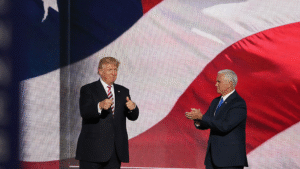
UK Grocery Inflation Eases to 5% in August 2025
UK grocery inflation eases to 5% in August 2025, showing slight relief. Consumers shift to value shopping as branded items rise and dining out declines.

The world is always hungry for groundbreaking ideas. As the pandemic turns the worldwide economy on its head, innovation and innovative thinking clasp the key to a more supportive, sustainable, and equitable future. From a survey by Henkel, about 56% of organizations say that innovation is much needed now than ever. However, most respondents perceive that they have an opportunity to get better when it comes to their own activity: less than half of the respondents have a history of conveying innovative solutions, and about 67% of them fail more often than they succeed. But the good news is that while businesses battle with certain aspects of development, they are at least clear about what they need to do to have an innovation embedded culture that encourages it in the first place. Across various sectors and geographies, respondents concur that strong leadership, risk tolerance, and diversity are the best approaches to encourage innovation.
As everything around us is constantly changing, business organizations realize the desperate necessity to innovate, and on a basic level, they know how to do it. However, many lacks the confidence to trust in their potential, and they face difficulties when echoing their ideas into reality. So then, how might they improve their performance around there?
Innovation thrives on strong leadership. And without strong leadership, innovation is pretty unlikely to unleash its potential at all. Bad or weak leadership—or even terrible initiatives, for that matter— can be just as harmful to the development process. In response to Henkel’s survey, two in three respondents mention that their innovation either does not receive the support and encouragement they need, or poor leadership has simply distorted an otherwise excellent innovation.
It is possible that the basic idea of an ‘innovation leader’ might need an update for the modern cutting-edge world. More than a handful of executives believe that the idea of a maverick visionary is outdated. Half of them say that it is no longer realistic for a single-minded person to achieve success today.
The pattern is toward a group-based approach that is supported by training and personal development. Bringing together different people and providing them with a platform where they can share, debate, and implement their ideas is a reliable approach where you can see the magic happen. It can change the world; and also, the corporate environment. The emergency is empowering more noteworthy methods and ideas, and mixing backgrounds could take innovation to a whole new level.
There is no doubt that all of us want to see the best outcomes of our ideas at all times. The sad part is that the message of accepting failure has not quite paved its way into everyone’s ear. More than three-fourths of respondents worry about a failed innovation’s impact and how it could hinder their profiles and career trajectory. Innovation is all about experimenting, tinkering, and making a million mistakes. In some cases, some businesses may have successfully innovated without a healthy risk appetite. But in most cases, businesses commend the concept of ‘fast-failures’ in recent years to encourage risk-taking and normalize failure as part and parcel of life.
In the business world, innovation and change share a similar meaning. But there lies the principle hurdle—to err is human. It is the willingness to break norms and drive change. Employees are likely to demand positive change, and half of them are more open to the trial-error manner of working, which can support a shift to sustainable operating models. Along with innovation, sustainability will soon be making its way into businesses.

UK grocery inflation eases to 5% in August 2025, showing slight relief. Consumers shift to value shopping as branded items rise and dining out declines.

Zelenskiy–Trump summit boosts markets as equities rise and the dollar steadies amid growing peace hopes. Investors await Fed insights at Jackson Hole for further direction.

Statistics Canada is investigating an accidental early release of June manufacturing data, raising concerns over data governance and market integrity. The agency has launched an internal review to strengthen its publishing protocols.

Investor confidence in France is deteriorating as political gridlock and budgetary uncertainty deepen.

June 09, 2025: Canada will host the 50th G7 Summit from June 15 to 17 in Kananaskis, Alberta, amid heightened global tensions and economic rifts.

May 30, 2025: Canada’s economy expanded at an annualized rate of 2.2% in the first quarter of 2025, outperforming the market forecast of 1.7%.

At seventeen, Professor Richard Rose stepped into a world few adults dare to navigate: the world of children fractured by trauma. He wasn’t a clinician then, nor a scholar. He was simply a young man with a heart tuned to the quiet ache of others.

Following a distinguished Law Enforcement career Joe McGee founded The Securitatem Group to provide contemporary global operational specialist security and specialist security training products and services for private clients, corporate organisations, and Government bodies. They deliver a wide range of services, including complete end-to-end protection packages, close protection, residential security, protection drivers, and online and physical installations. They provide covert and overt investigations and specialist surveillance services with a Broad range of weapons and tactical-based training, including conflict management, risk and threat management, tactical training, tactical medicine, and command and control training.

Jay Wright, CEO and Co-Owner of Virgin Wines infectious energy, enthusiasm, passion and drive has been instrumental in creating an environment that encourages talent to thrive and a culture that puts the customer at the very heart of every decision-making process.

Fabio de Concilio is the visionary CEO & Chairman of the Board at Farmacosmo, a leading organization dedicated to mental health and community support services. With a deep commitment to identifying and meeting customer needs, Fabio ensures that high standards are maintained across the board.

Leave us a message
Subscribe
Fill the form our team will contact you
Advertise with us
Fill the form our team will contact you